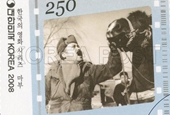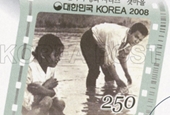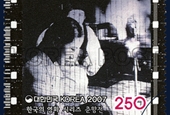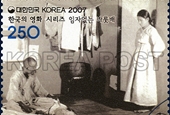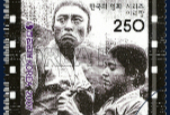- 한국어
- English
- 日本語
- 中文
- العربية
- Español
- Français
- Deutsch
- Pусский
- Tiếng Việt
- Indonesian
The third series of Korean film stamps issued by Korea Post in 2009 contains four representative films from the 1970s and 1980s. This single sheet of stamps includes the movies "The Road to Sampo" (1975), " Never, Never Forget Me" (1976), " Yalkae" (1976) and " Chilsu and Mansu" (1988). Continuing with this series of articles, please find below an introduction to the movie, "The Road to Sampo."
The Road to Sampo
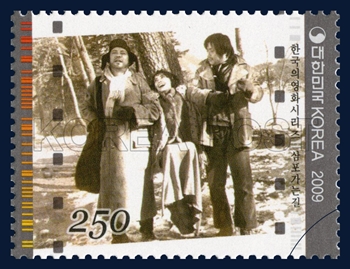
'The Road to Sampo' (1975), directed by Lee Man-hee, produced by the Yun Bang Films Co. (image: Korea Post)
The film "The Road to Sampo" is a screen adaptation of an original short story of the same name by Hwang Seok-Young, first released in 1973 in a monthly magazine, Shindonga (新東亞).
The story's narrative traces the lives of ordinary people living during the dynamic times of rapid urbanization and industrialization during the 1970s.
Following the format of a road movie, the film follows homeward bound Yeongdal, Jung-ssi (Mister Jung) and Baekhwa.
A day laborer, Yeongdal moves from one construction site to another in pursuit of work until he sets out to the south. He is accompanied by Mister Jung whom he often encounters at a diner. Mister Jung gets by on construction sites, too, using the skills he learned while serving time in prison. He dreams of home, Sampo, where he would fish in the sea as the wind blew and tend his crops. He decides to hit the road with Yeongdal.
Before they leave, a runaway bar girl, Baekhwa, joins the two. On the way, she develops feelings for Yeongdal, though he doesn't open up that easily.
Just before boarding the train, Mister Jeong is disappointed to hear that his hometown had lost its old charms. On the other hand, Yeongdal welcomes the fact that there is a building boom with promises of finding work. Eventually, Yeongdal buys Baekhwa a ticket to her own hometown, hinting at a farewell. Scenes of snow-filled fields are memorable and the lingering ending leaves it unclear whether or not they actually board their trains.
The film was finished posthumously by director Lee Man-hee, also known for his film "Manchu" (1966) ("晚秋"), literally meaning, "Late Autumn." A remake of "Manchu" was made in 2011 starring Hyun Bin and Tang Wei.
The leading actors in "The Road to Sampo" are Baek Il-Seop, Kim Jin-kyu and Moon Sook. The film was awarded the best film, best director at the 14th Grand Bell Awards, with Kim Jin-kyu as best supporting actor and Moon Sook as best new actress.
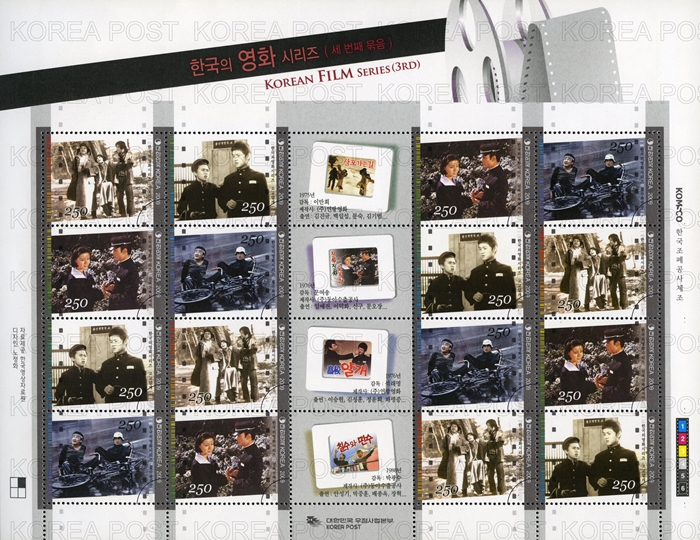
Issued in 2009, the third series of Korean film stamps by Korea Post includes 'The Road to Sampo,' 'Never, Never Forget Me,' 'Yalkae' and 'Chilsu and Mansu.' (image: Korea Post)
Video introducing the stamp series:
http://www.youtube.com/watch?v=jVlQlKH1dm4
By Paik Hyun
Korea.net Staff Writer
cathy@korea.kr

